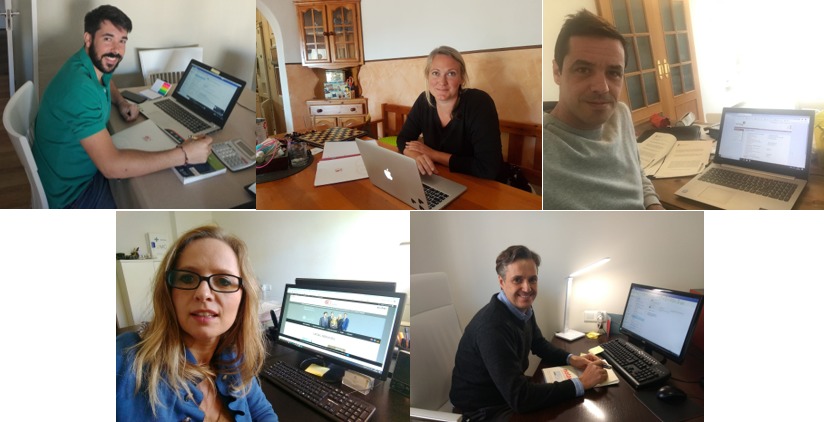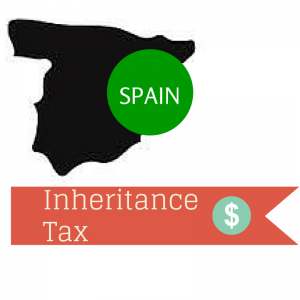FIRST OCCUPATION LICENCE (LPO) IN ANDALUSIA REPLACED BY RESPONSIBILITY DECLARATION

Big news for Andalusian house owners that don´t have their First Occupation Licence (LPO) yet which is obliged to present when applying for the RTA rental licence of the Registro de Turismo de Andalucia. This was a problem because many houses don´t have this licence as it wasn´t a standard requirement for new build houses until the eighties.
On March 12, the Andalusian Government published in its Official bulletin (BOJA) a Law Decree which has as its main purpose to simplify the regulation of some procedures in Andalusia. This regulation has affected a multitude of procedures and among these the new article 169 bis of the Urban Planning Law of Andalusia (LOUA) of 2002 was approved, which affects the First Occupation Licence (Licencia de Primera Ocupacion or LPO in Spanish).
Likewise, article 169.3 of the LOUA has been modified with a second paragraph that establishes that those acts that are subject to a responsibility declaration do not require a licence. As a general statement, we can say that the new decree allows obtaining the right to occupy or use the majority of buildings located on consolidated urban land throughout Andalusia, by submitting the responsibility declaration together with the required legal documentation by the interested party.
In other words, it will no longer be necessary for these buildings to obtain the First Occupation Licence (LPO) from the city council since the new ´Declaration of occupation or use´ replaces the Occupation Licence. The responsibility declaration of occupation grants the owner the same rights that the First Occupation Licence granted from the day of its presentation.
What is a “responsibility declaration”?
The responsibility declaration is a document signed by the interested party in which he declares that he meets a series of requirements according to specific regulations and therefore allows him to acquire a right. From the date of presentation (also by a certified architect) the right that is intended to the interested party is recognized, so from the legal point of view it is equal and replaces the earlier First Occupation Licence (LPO) granted by the City Council.
This type of procedure is becoming more common in the Spanish administration. This is because from the presentation of said responsibility declaration the right is recognized and, therefore, it is possible to avoid the waiting time and delay of the administration which in the case of the First Occupation Licence was months.
Which buildings can present a responsibility declaration for their right of occupation?
Article 169 bis commented above, establishes in its section c that it can be obtained by responsibility declaration “the occupation or use of the works of the previous section, provided that the buildings and facilities are finished and their destination is in accordance with the regulations of application”. These works in section b) of article 169, whose occupancy rights would be obtained by means of a responsibility declaration, are: “Works in existing buildings and facilities, on consolidated urban land and in accordance with urban planning, that do not alter the occupation and height parameters, nor involve increases in buildability or the number of homes ”.
Therefore, in section c, existing buildings that have never had a First Occupation Licence are enabled so that they now can obtain their right of occupation, by filing a responsibility declaration. Section d includes the possibility of obtaining the first occupation or use, through a responsibility declaration for new buildings: “d) The first occupation and use of new buildings, provided they are finished and their destination is in accordance with the application regulations and with the works licence granted”.
It is important to say that this change does not affect dwellings on undeveloped land, rustic dwellings, since they cannot obtain the First Occupation Licence as they officially are not part of the urban planning.
What obligations does the responsibility declaration establish?
The interested party who signs a responsibility declaration to acquire the right to occupy a property is responsible for the fulfilment of the established requirements to be able to enjoy said right. Along with the aforementioned declaration, he must present the required technical and legal documentation that certifies compliance with the requirements. Likewise, it will undertake to maintain compliance with said requirements once the declaration is presented.
Therefore, it is evident that responsibility declarations for the occupation or use of a building should not be presented when the requirements demanded by the norm for their presentation are not complied with. It must previously be analysed whether the house in question can obtain this right. It should not be forgotten that the presentation of the responsible declaration supposes assuming a legal responsibility. Presenting said declaration with falsification of the data or documents provided or not attaching all the required legal documentation may suppose legal responsibility for the interested party by the administration.
How does this regulatory change affect tourist rental in Andalusia?
This regulatory change is evident that it will allow many homes, which up to this date do not have a First Occupation Licence for various reasons but still complied with the requirements. These can now obtain this legal recognition with the presentation of the responsibility declaration and required documentation. Since the Andalusian Government legislated tourist homes and forced their registration in the Andalusian Tourism Registry (RTA), requiring the First Occupation Licence, there are many homeowners in Andalusia: Malaga, Costa del Sol or Costa Tropical for example, who have applied for such a licence for their homes. Due to the slowness of the municipalities in granting the First Occupation Licences, many of the owners that have applied for said licence are still waiting for this to be resolved.
Many owners from towns such as Nerja, Málaga, Marbella, Vélez-Málaga, Benalmádena, Fuengirola, Almuñécar, Torrox … etc, and many other municipalities on the Costa del Sol and Costa Tropical will now be able to obtain their right of occupation through a responsibility declaration and hence comply with the requirement of the LPO. This way they can carry out the registration of their home in the RTA for the tourist rental of the property.
There are more than a few foreign clients of our office who have spent months or years “fighting” with their City Council to obtain their First Occupation Licence and now they will be able to obtain said right with the responsibility declaration, easily and quickly. Of course, for these homes, this regulatory change has meant a very important and positive change since one of the main attractions for a foreigner who wants to buy a property in Andalusia is its profitability through tourist rental. With the current crisis of the coronavirus COVID-19, these types of changes help the economic activity.
How does this change affect the sale of second-hand properties?
Most of property purchases by foreigners in Andalusia are existing homes and some of these do not currently have an LPO. It is evident that the responsibility declaration will, from now on, facilitate the process of obtaining the right to occupy a property. This due to the fact that it is understood that the right of occupation or use has been acquired since the presentation of the responsible declaration. Well, from the buyer’s point of view it is very important that, when buying on urban land, carefully check whether the property can obtain said right of occupation or not if the occupancy rights have been acquired by the seller through the presentation of the responsibility declaration.
The potential buyer must request a copy of the technical documentation presented together with the declaration from the seller, so that his lawyer and / or architect can review it and confirm that said property meets the requirements to obtain the right of occupation or use. If the future buyer does not make this verification, there is a risk that the seller of the property, in order to make it appear that his home has the right of occupancy, presents or is going to present the responsibility declaration despite the fact that the property cannot obtain said right for not complying with the requirements.
In this scenario, the buyer and new owner of the property may encounter a problem. Obviously, the seller could be held responsible for this situation but in most cases of foreign sales, the sellers are non-resident, it would be expensive and complicated to initiate legal proceedings. Always check with your lawyer about the situation of the property you are going to buy.
What happens with new construction promotions?
As we have previously mentioned, also for this type of housing it is possible for the developer to obtain what was previously the First Occupation Licence (LPO), through the declaration of occupation or use. The Urban Planning Law of Andalusia (LOUA) with this regulatory change, establishes that an occupancy licence for new homes is not required in Andalusia, it is possible to present the responsibility declaration of occupation.
In other words, even if the developer wanted to he or she could no longer obtain the LPO from the City Council as a result of this regulatory change. This means that, even if it is stated in the signed private purchase contract that the developer is required to obtain the LPO it would now be sufficient for the developer with the responsibility declaration as it would prove that the new house has the right of first occupation. The promoter by means of the declaration fulfils the private contract of sale.
What happens if the developer has improperly filed the statement?
The City Councils have an obligation to review whether or not the responsible statement meets the requirements to obtain the right of occupation or use, and may declare the cessation of occupation in the event that the requirements are not met and may also demand legal responsibility from the promoter for said actions.
If within the first six months from the presentation of the declaration, the City Council has not adopted the necessary measures for the cessation of the act or use, in the event that the requirements for that occupation are not met, the City Council would be liable for damages caused to third parties in good faith. In other words, the City Councils would answer to the people who bought these homes with the conviction that the sale could be carried out, since these the day they signed the Deed of Sale, they had the declaration responsible for the promoter of occupation or use (former LPO) .
The foregoing gives leaves us to understand that if the Town Hall reviews said declaration in those first six months and understands that the cessation of the occupation must be decreed, the developer would be responsible for the damages to the buyers. However, I understand that in most cases there should be no damage to the buyers, since the optional management of the works (mainly architects and surveyors) will ensure that their final works certificate is in accordance with the law since they would be the main responsible along with the promoter if this was not the case. The final works certificate is the most important technical document to obtain the right of occupation in a new home.
Can the declaration of occupation or use be presented in all Town Halls?
It is true that to this date few municipalities have approved specific procedures for this process such as Malaga, Marbella, Seville or Córdoba. The Andalusian Government has published a practical guide to this decree, along with the models for the responsibility declaration and the necessary documentation, so that the Town Councils can use it. In our opinion, such models can also be used by citizens since the right of occupation can only be obtained through a responsibility declaration, and not through a licence granted by the City Councils as of March 13th 2020.
It is true that since most of the municipalities have not approved this new procedure through their municipal ordinance, it is likely that they do not agree with obtaining said right of occupation by presenting the responsibility declaration, unless that City Council has previously approved that specific procedure.
Notwithstanding this Decree in the tenth transitory provision, allows those interested who prior to March 13 have initiated a procedure to obtain a first occupation license, can request the application of this new procedure and therefore may obtain the right of occupation through the responsibility declaration.
If the new regulation provides for the possibility of changing the procedure already initiated, we understand that since it entered into force it allows obtaining the right of occupation by means of a responsibility declarations, even though the City Council has not published its municipal ordinance.
Can supplies be contracted with this responsibility statement instead of the LPO?
The answer is categorically YES. Although it is very likely that it will be necessary to explain and discuss, at least during these first months since probably several of the supply companies for electricity and water will not have obtained this information or guidelines of said legal modification and will continue to demand the LPO. As you can understand, the best thing to do if you are an owner is to consult with your lawyer or architect about the specific situation of your property.
Of course, if you are in the process of buying a home or thinking about it, it is very important to contact a specialized lawyer who can advise you in the process of buying and selling the property and who knows these urban issues well.
Author: Gustavo Calero Monereo, lawyer at C&D Solicitors, (Málaga, Andalusia)


















